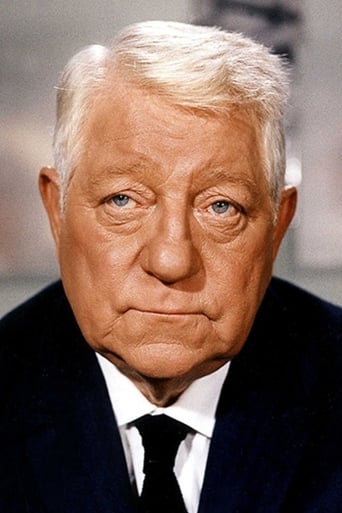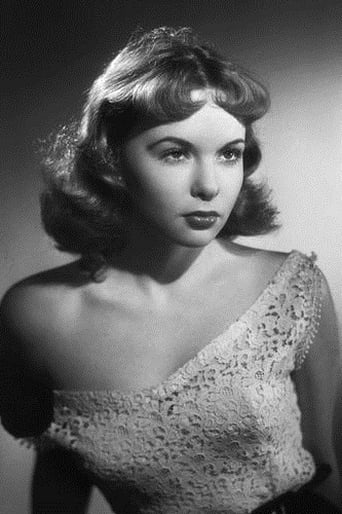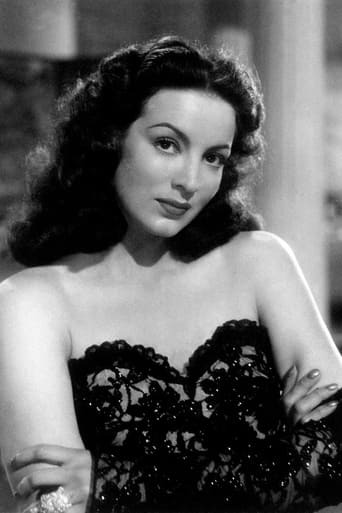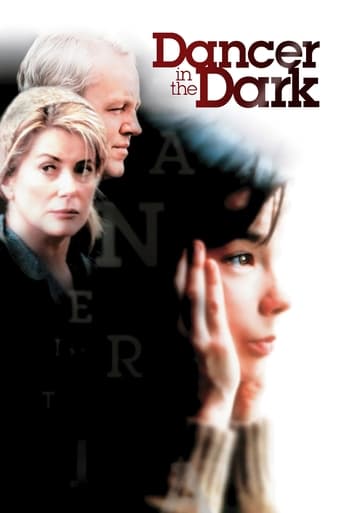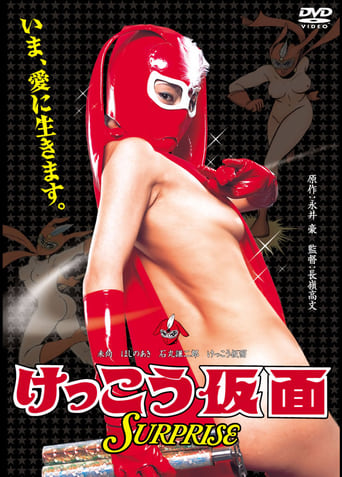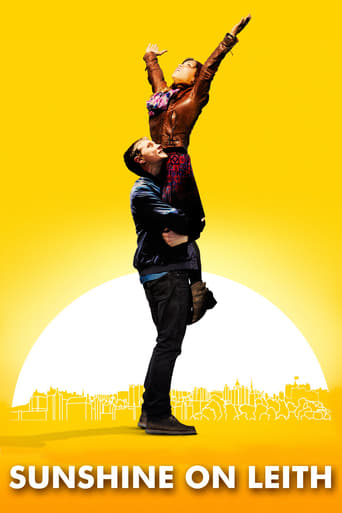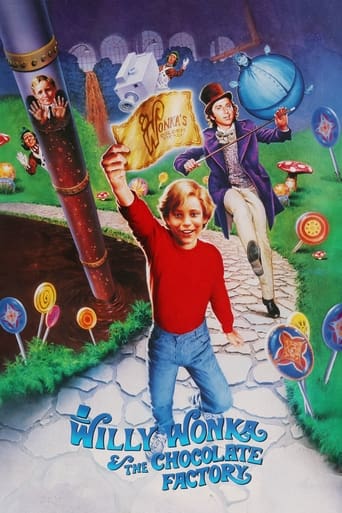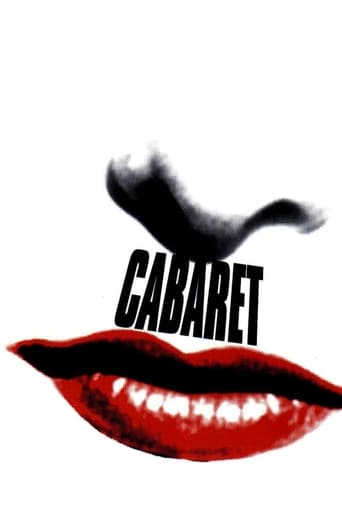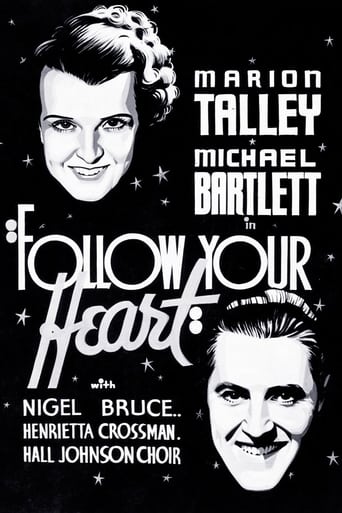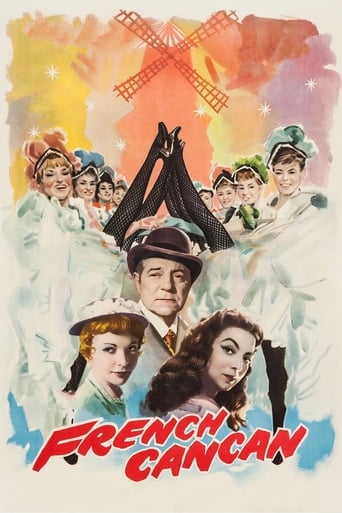
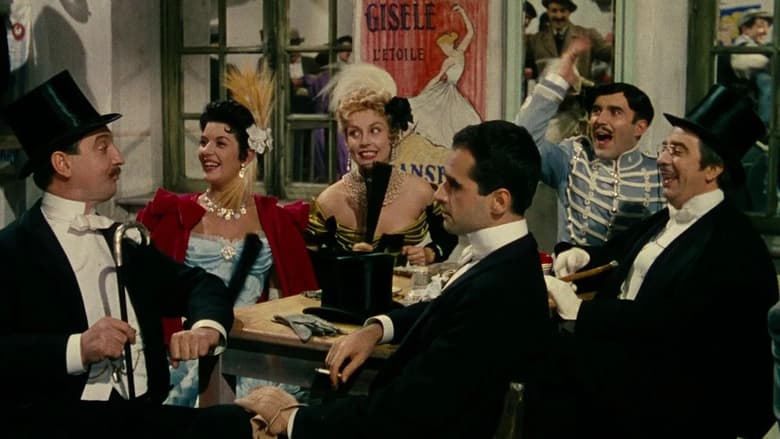
French Cancan (1956)
Nineteenth-century Paris comes vibrantly alive in Jean Renoir’s exhilarating tale of the opening of the world-renowned Moulin Rouge. Jean Gabin plays the wily impresario Danglard, who makes the cancan all the rage while juggling the love of two beautiful women—an Egyptian belly-dancer and a naive working girl turned cancan star.
Watch Trailer
Cast
Similar titles
Reviews
Crappy film
Clever, believable, and super fun to watch. It totally has replay value.
It's easily one of the freshest, sharpest and most enjoyable films of this year.
what a terribly boring film. I'm sorry but this is absolutely not deserving of best picture and will be forgotten quickly. Entertaining and engaging cinema? No. Nothing performances with flat faces and mistaking silence for subtlety.
Brilliantly made, colourful and gay, all the technical full-fledged resources of the vast experience of Jean Renoir is used in flamboyance, but it doesn't help. The story is hopelessly thin and superficial, almost stupid in its simplicity, the characters are all just casual types with very few exceptions, there is no drama at all except in flash moments, and even Jean Gabin falls flat and for once does not die in the end.Nevertheless, the finale is breathtaking with its ten minutes of ballet, and the film is worth watching if only for this, while all the rest is just flippant nonsense. There is not even any real sense of humour. His previous "The Golden Coach" was over-brimming with that, and it's surprising that Jean Renoir left that vital ingredient totally out of this movie more made 'at home'. Even the music is insipid.I saw it in black and white 50 years ago on television and was disappointed by its inanity. I thought it could be worth being given a second chance and in colour. but alas - it was still only a very casual flippant totally superficial entertainment of no real sense and meaning, in spite of all its technical brilliance. Jacques Demy would soon come with the real stuff on stage with much better music.
Jean Renoir's gorgeous film, French Cancan, is a symphony of color, dancing, singing, and humor.It stars Jean Gabin as Henri Danglard, a club owner who is hitting the skids with his café "Le Paravent Chinois" which features his mistress, Lola, played by the legendary, mega Mexican star, "La Dona," Maria Felix.Danglard has an idea of reviving the cancan, which he has seen on the Montmarte. In 1890, it is considered an old dance, but he renames it French cancan and decides to have it in a fabulous new club, the Moulin Rouge.He becomes interested in a young laundress, Nini, who impresses him with her dancing one night when he dances with her. He wants to star her in his new show.This is easier said than done. There's jealous Lola and Nini's baker boyfriend, and a prince who falls for her. While they tug at her heart, Nini has fallen for Danglard.This is a fun movie, and a chance for me, anyway, to see Maria Felix. I had only seen her interviewed when she was quite old, and a movie in my high school Spanish class. She was statuesque with a strong face and looks quite beautiful here, displaying sophistication and toughness.Gabin, of course, is wonderful - this is the first time I've seen him in anything but a depressing drama - he emanates charm.Great-looking film with the Renoir touches - so many scenes look like paintings. Highly recommended.
A charmingly amoral club owner sets his sights — amorous and financial — on a beautiful, naïve blue collar girl and propels her to the height of celebrity thanks to her titillating dance skills.It may sound like a contemporary, cutting edge urban drama, but French Cancan was made in 1956 by famed director Jean Renoir. The movie — a darkish comedy with a progressive take on sexuality — chronicles the birth of the Moulin Rouge. Legendary Jean Gabin plays Danglard, a world-weary hustler, club owner and anti-hero for the ages, who makes no pretense of his philandering and amorous proclivities. He's casting about for a new lover and a new money making venture when his current club fails and he grows bored with his mistress. He discovers a beautiful young washer girl, Nini, whom he convinces to headline at his new "concept" club, the Moulin Rouge, making it a hot spot and her a celebrity before the doors even open.It doesn't hurt that Nini's moody ex-lover — a sullen baker (le petit grump) — injures Danglard in a fight and an even moodier Russian count becomes suicidal because Nini spurns his advances. As the salacious headlines drive up public interest, they learn the club will feature the cancan in all it's thigh-revealing, petticoat-flashing, bawdy glory — a disreputable dance to begin with now fallen completely out of favor.The movie is a riot with memorable characters, beautiful, dizzying club and dance scenes, a few titillating moments that must have pushed the limits 60 years ago and swooning French girls forever throwing themselves desperately into and out of the arms of their lovers. You almost forget that it's a musical, so seamlessly are the musical and dance scenes integrated into the plot.Danglard's gangly side kick is hilarious as is the whistler. Most delightful of all was seeing and hearing the divine Edith Piaf on screen after listening in awe to her songs all these years.The movie is best enjoyed with absinthe in honor of the absinthe consumed on screen — as fate would have it, we had some delightful Oregon-made absinthe that night — or lots of champagne.-- www.cowboyandvampire.com --
I haven't yet been completely blown away by a Jean Renoir film. The closest candidate so far was the wonderful 'A Day in the Country (1936),' which unfortunately suffered the handicap of being unfinished. Even so, I find the director's films to be extraordinarily pleasant viewing, and I'd much sooner sit down for a Renoir than I would for, say, a Godard or Fellini film. 'French Cancan (1954)' is a completely pleasant, and entirely unpretentious, musical comedy that goes by so breezily that you're apt to forget that you're watching the work of France's most respected filmmaker. Less concerned with cultural satire than 'The Rules of the Game (1939),' the film is instead similar in tone to 'Elena and Her Men (1956),' a completely inconsequential piece of cinema that is nonetheless a lot of fun to watch. Both of these films were shot in exquisite Technicolor, of which Renoir takes full advantage, filling the frame with glorious costumes, colours and people.Henri Danglard (Jean Gabin) is a respected theatre producer who lives the high life, despite relying upon financial backers to sustain his extravagant lifestyle. A charming chap, and convincingly debonair given his age, Danglard shares the company of the beautiful but temperamental Lola de Castro (María Félix), into whose bed many have attempted to climb (and probably with little resistance). When Danglard woos a pretty young laundry-worker, Nini (Françoise Arnoul), into dancing the cancan for him, Lola is overrun with jealousy, and all sorts of anarchy takes place amidst this romantic rivalry. Meanwhile, a handsome European prince (Giani Esposito) offers Nini his hand in marriage, but she's not willing to make such a dishonest commitment, more inclined to stay with Danglard, who inevitably plots to discard her as soon as his next promising starlet comes along. Jean Gabin, who had previously worked with Renoir in the 1930s, is terrific in the main role, overcoming his mature age to succeed as a potential lover.It's interesting to compare Hollywood films of the 1950s with their European counterparts. Thanks to the Production Code, most American romantic comedies kept the romance almost entirely platonic, whereas here Renoir's characters speak of sex and adultery as though it is a perfectly acceptable practice. Even the adorable Françoise Arnoul, who occasionally reminded me of Shirley MacLaine, is treated as an openly sexual women, and not just because her character specialises in a dance designed purely to display as much leg as possible. Like many of Renoir's films, the characters themselves aren't clearly defined, and so it's difficult to form an emotional attachment. Indeed, only in the final act does Danglard come clean with the extent to which he romantically exploits his dance recruits, though even this moment is overshadowed by the premiere show of the Moulin Rouge. Perhaps it is through his caricatures that Renoir is making a quip about bourgeois French society that they're all hiding behind fallacious identities and intentions. Or am I looking too far into this quaint musical comedy?
